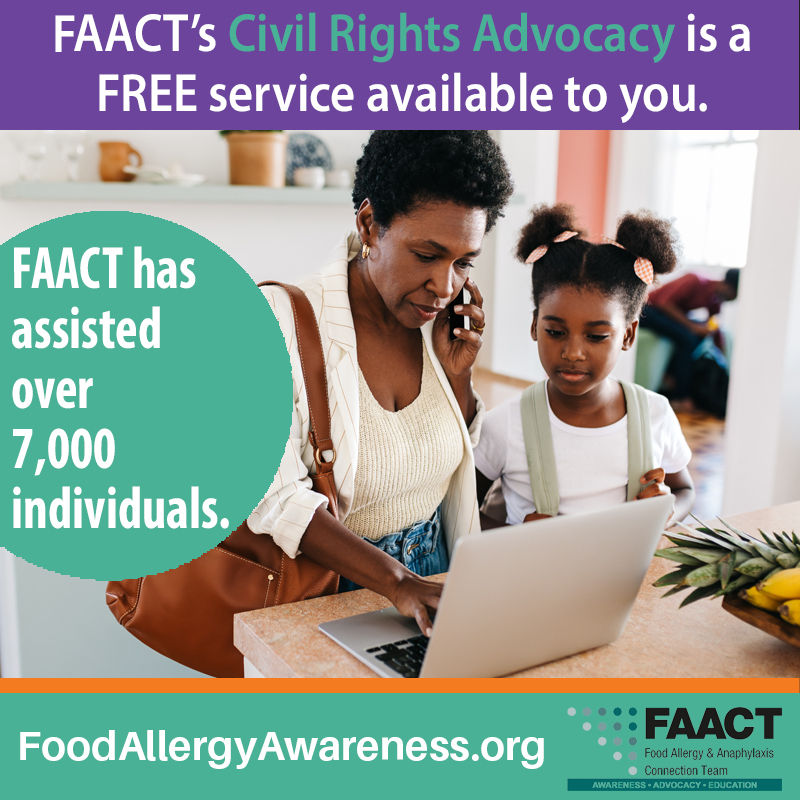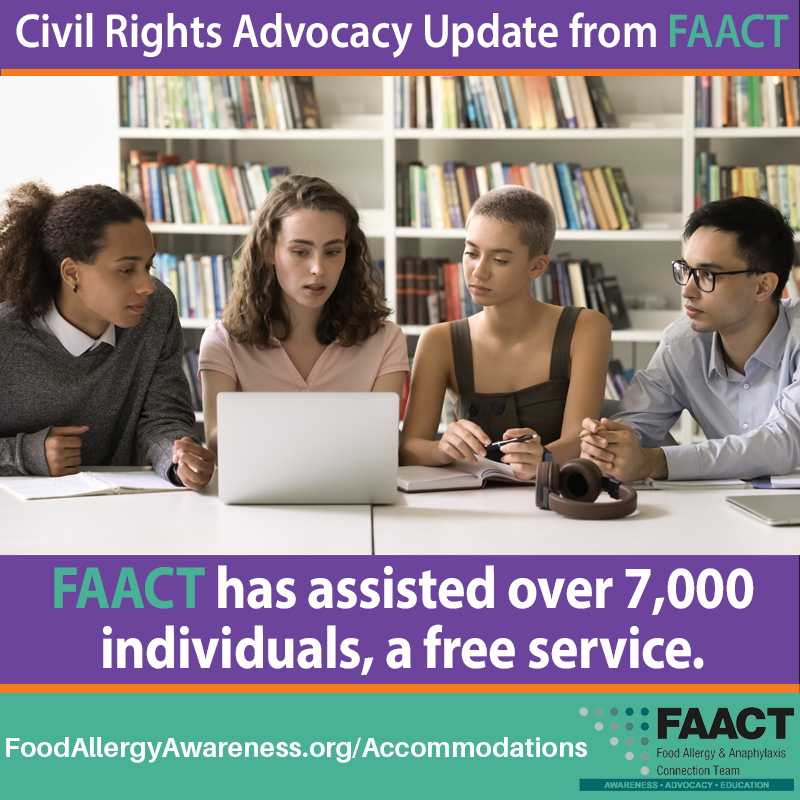Civil Rights Advocacy Overview

Civil Rights Advocacy Overview
Through Civil Rights Advocacy, FAACT educates and informs food-allergic individuals of their rights to safely and equally participate alongside non-allergic individuals.
The U.S. Department of Education, Office of Civil Rights, and the U.S. Department of Justice have determined food allergies may be deemed a disability that requires accommodation under federal disability laws and regulations. FAACT’s Civil Rights Advocacy Resource Center puts these laws, regulations, and agency opinions at your fingertips as well as resources and tools to assist food-allergic individuals in seeking accommodations.
Because laws vary by jurisdiction, and agency policies vary by state and locality, local professionals are often the best experts on these varying laws and policies. FAACT can help you find local civil rights professionals and are available to answer your questions or assist you in seeking accommodations - a complimentary service.
For questions or more information, please contact Amelia.Smith@FoodAllergyAwareness.org

Civil Rights Advocacy Update from FAACT
FAACT recognizes that this is a time of great uncertainty in the food allergy community and the disability community at-large, from recent social media posts about Texas vs. Becerra, a suit filed in a Texas Federal Court in Sept. 2024, which not only challenges the recent rule recognizing gender dysphoria as a disability but also challenges the constitutionality of Section 504 of the Rehabilitation Act of 1973, itself, the law that ensures equal access for individuals with disabilities, including equal access to a free and appropriate public education for K-12 students, to the risk of budget and staffing cuts at the U.S. Department of Education, Office for Civil Rights, the entity charged with ensuring compliance with the requirements of Section 504, much less the uncertainty as to the future of the U.S. Department of Education as a whole. We understand, and we feel it, too. Uncertainty is uncomfortable, but the worst thing we could do now is panic and/or throw in the proverbial 504 towel.
Instead, we focus on the certainties we enjoy now. Legal challenges typically take years, and any major changes to the OCR or the Department of Education would most certainly be the subject of legal challenges. Imminent danger of Section 504 becoming unenforceable is unlikely. That said, now is also not the time for complacency. If anything, these present concerns teach us that we cannot take the rights of individuals with food allergies for granted, rights that are guaranteed today.
FAACT continues to advocate for and educate on the civil rights of individuals with food allergies, while supporting individuals and families with civil rights concerns and monitoring the horizon for challenges to these rights. You can also advocate for and show your support of civil rights protections for individuals with food allergies. Contact your Congressperson, Senator, and, if you live in one of the 17 states party to Texas vs. Becerra, contact your State Attorney General, and let them know how Section 504 has impacted you or someone you love. Educate others on the rights of individuals with food allergies. Even educating yourself on the civil rights of individuals with food allergies by visiting our Accommodations section is an action of support.
With college decision deadlines approaching and K-12 plans being revised for next school year, now is the time to plan next steps. And please don’t hesitate to contact us with any questions. You may reach FAACT's VP of Civil Rights Advocacy at Amelia.Smith@FoodAllergyAwareness.org.

